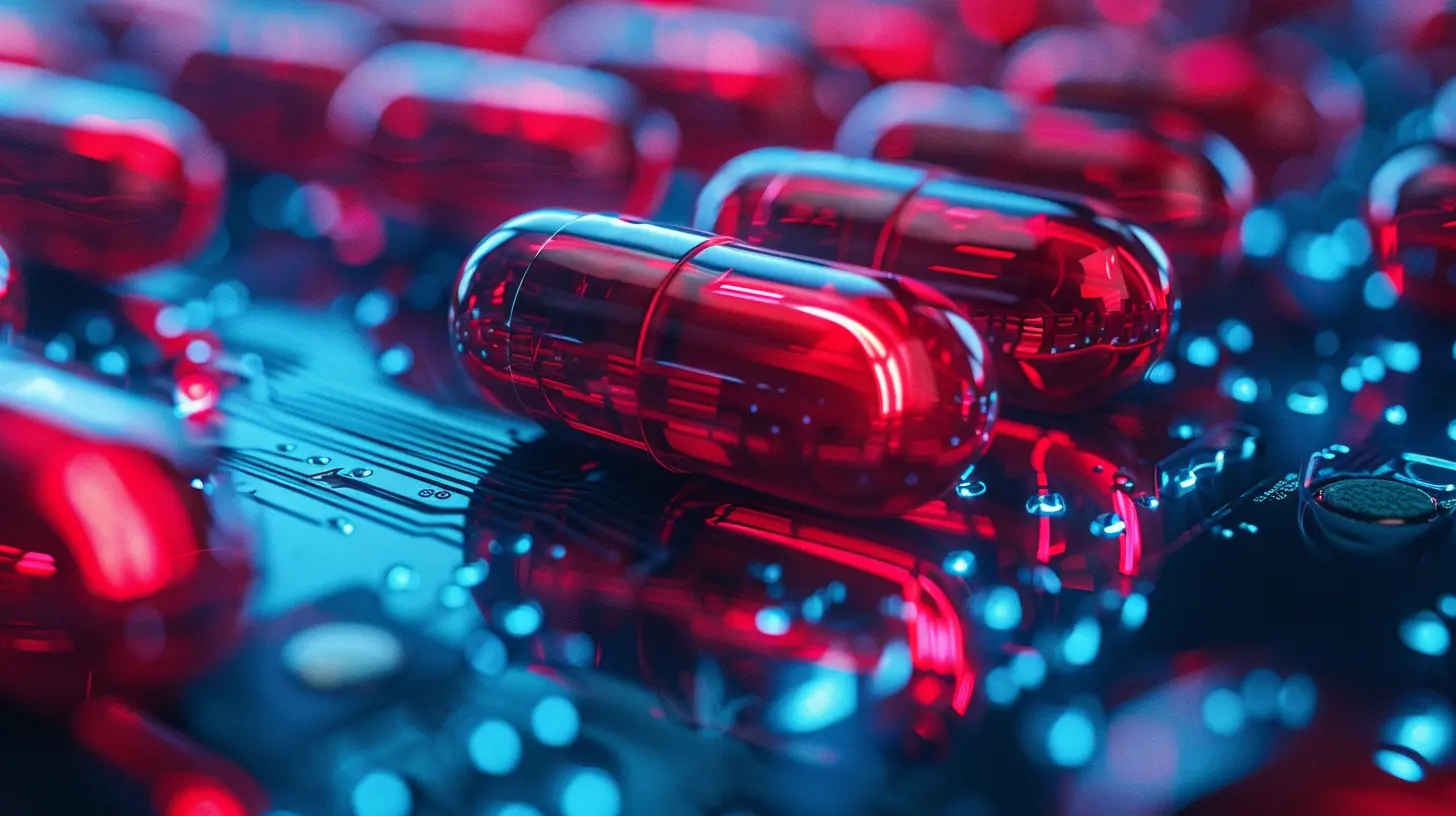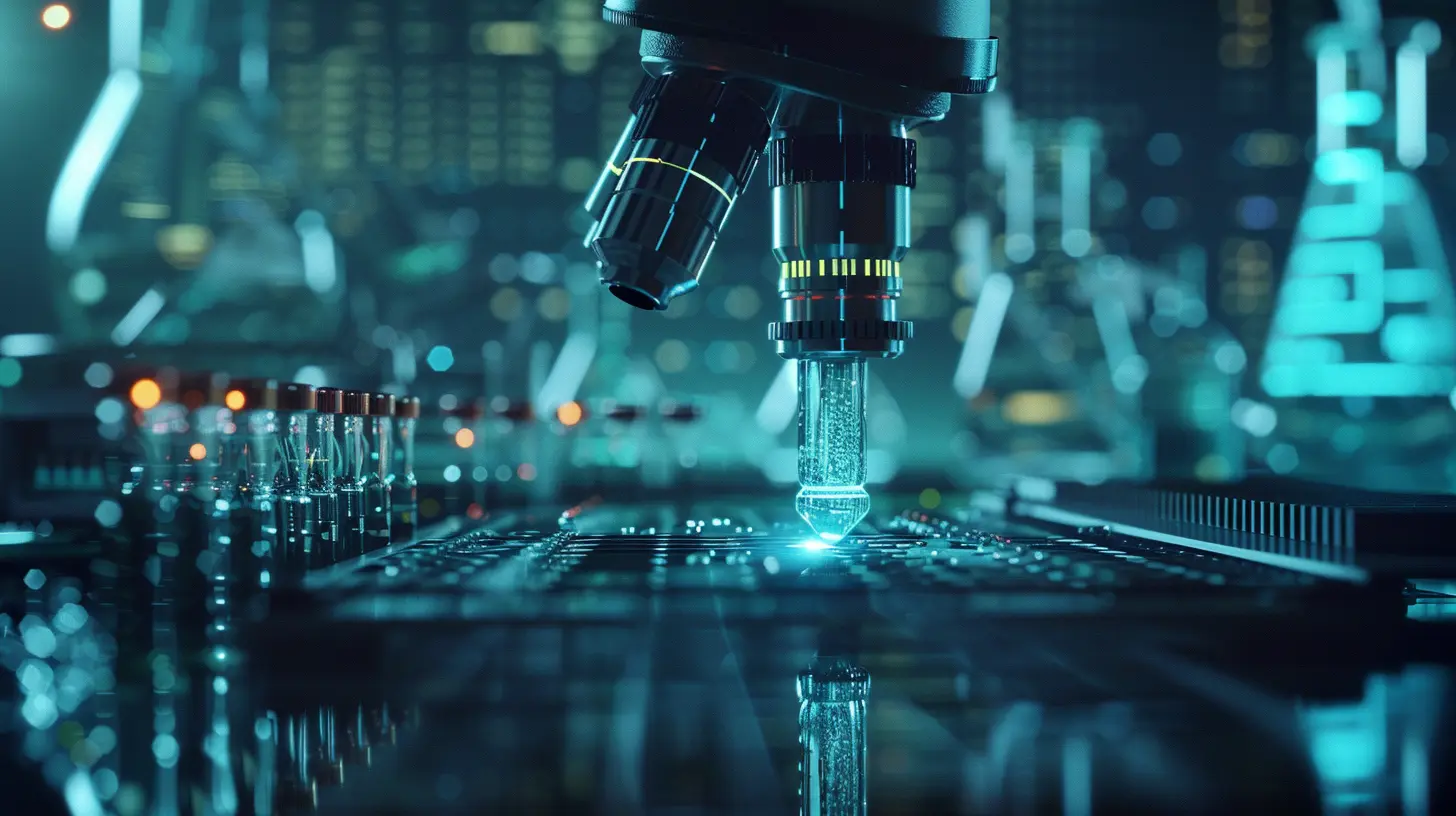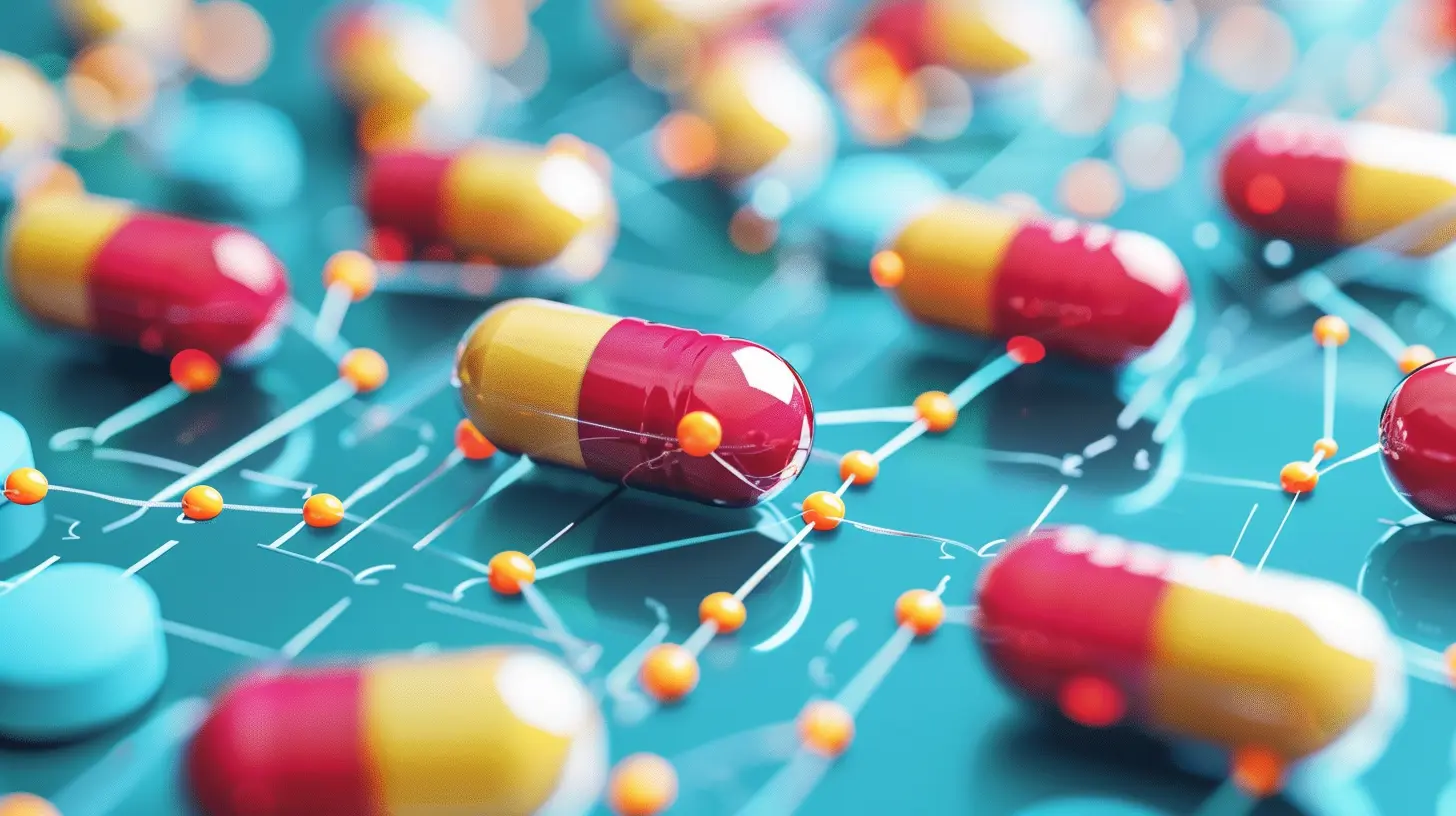Machine Learning in Healthcare: From Diagnosis to Drug Discovery
8 August 2025
The intersection of technology and healthcare has always been a breeding ground for innovative solutions. But let’s be honest, nothing is shaking up the healthcare industry quite like machine learning (ML). From diagnosing diseases faster than ever to helping scientists discover new drugs, ML is rapidly transforming the way healthcare operates. It's like healthcare's secret weapon, helping doctors and researchers make smarter decisions. But here's the real question: how exactly is machine learning being used in healthcare, and what does it mean for the future of medicine?
In this article, we're going to dig deep into how machine learning is revolutionizing healthcare, one algorithm at a time. Ready to dive in? Let’s go!

What is Machine Learning?
Before we jump into the healthcare side of things, let’s quickly cover the basics. Machine learning is a subset of artificial intelligence (AI) that enables computers to learn from data without explicit programming. It’s like teaching a computer to think on its own based on patterns and data. The more data you feed it, the smarter it gets.In simple terms, think of machine learning as that really smart friend who learns from experience. You don’t need to tell them everything step by step—they pick up on patterns and adapt. In healthcare, this is a game-changer. Imagine a machine that can analyze thousands of medical records and recognize patterns that even experienced doctors might miss. Sounds promising, right?
Now, let’s talk about how it’s making waves in healthcare.

Machine Learning in Medical Diagnosis
1. Early Detection of Diseases
One of the most exciting applications of machine learning in healthcare is in the early detection of diseases. The earlier a disease is detected, the better the chances of treating it effectively. Machine learning algorithms can sift through vast amounts of patient data—things like medical histories, lab results, and even genetic information—to find patterns that could indicate the early stages of diseases such as cancer, diabetes, or heart conditions.For example, Google’s DeepMind has been working on ML models capable of detecting over 50 different eye diseases simply by analyzing retinal images. These systems can diagnose issues faster and more accurately than many human experts, which is especially helpful in areas where specialists are in short supply.
2. Personalized Diagnosis
Machine learning isn’t just helping with early detection; it’s also making diagnoses more personalized. We all know that no two patients are exactly alike. What works for one person might not work for another, and that’s where machine learning comes in. By analyzing individual patient data, ML can help doctors make more accurate and personalized diagnoses.Take IBM's Watson for example. This ML system can analyze a patient’s medical records, research studies, and clinical trials, and then provide doctors with personalized treatment recommendations. It’s like having a second opinion from an expert who never sleeps.

Machine Learning and Imaging
1. Medical Imaging Gets Smarter
Radiology and medical imaging are areas where machine learning is truly flexing its muscles. Today, radiologists are responsible for interpreting a mountain of images—X-rays, MRIs, CT scans, you name it. It’s a daunting task, and mistakes can happen. Machine learning helps by automatically analyzing these images for abnormalities like tumors or fractures.In fact, ML algorithms have become so efficient that they can now detect lung cancer in CT scans with greater accuracy than human radiologists. It’s not about replacing doctors but augmenting their abilities to make sure nothing slips through the cracks. Essentially, it’s like giving radiologists a superpower—enhancing their diagnostic capabilities and saving lives in the process.
2. Reducing Human Error
Human error is inevitable, but in healthcare, even small mistakes can have significant consequences. Machine learning systems, however, aren’t prone to fatigue or oversight. They can work tirelessly and consistently, scanning thousands of images or datasets and flagging any anomalies that might have been missed by the human eye. This reduces the likelihood of misdiagnoses and ensures that patients get the right treatment sooner.
Predictive Analytics in Healthcare
1. Predicting Disease Outbreaks
Beyond diagnosing individual patients, machine learning is also being used on a larger scale to predict disease outbreaks. By analyzing data from various sources—like social media, travel patterns, and historical health records—ML can forecast the likelihood of diseases spreading in certain regions.For example, during the Ebola outbreak, researchers were able to use machine learning to predict where the virus would spread next, allowing healthcare workers to intervene more effectively. It’s like having a crystal ball for public health, giving us the chance to stay one step ahead of potential disasters.
2. Predicting Patient Outcomes
Machine learning can also help predict patient outcomes. By analyzing data from previous treatments and patient records, ML algorithms can forecast how well a patient is likely to respond to a specific treatment. This allows doctors to make more informed decisions and tailor treatments accordingly.For instance, ML models are being used to estimate the chances of a patient developing postoperative complications. This helps healthcare providers take necessary precautions ahead of time, improving the overall quality of care.
Machine Learning in Drug Discovery
1. Speeding Up the Drug Discovery Process
Drug discovery is a notoriously slow and expensive process. It usually takes years and billions of dollars to bring a new drug to market. But with machine learning, things are starting to speed up. ML algorithms can analyze vast datasets of chemical compounds and predict which ones might have therapeutic potential. It’s like finding a needle in a haystack—but much faster.Take Insilico Medicine, for example. This biotech company uses machine learning to identify new drug candidates in a fraction of the time it would take using traditional methods. By analyzing everything from genetic data to chemical properties, ML can help researchers zero in on the most promising compounds.
2. Repurposing Existing Drugs
Machine learning is also helping scientists repurpose existing drugs for new uses. By analyzing data on how different drugs interact with the body, ML can identify drugs that might be useful for treating conditions they weren’t originally intended for. This approach was particularly useful during the COVID-19 pandemic, where researchers used machine learning to identify existing drugs that could potentially treat the virus.In a way, it’s like giving old drugs a makeover, breathing new life into them and potentially saving millions of dollars in the process.
Challenges and Ethical Concerns
1. Data Privacy and Security
As with any technology that deals with sensitive information, data privacy is a significant concern when it comes to machine learning in healthcare. Medical data is some of the most sensitive data out there, and breaches can be devastating. While machine learning systems offer incredible benefits, they also require access to vast amounts of patient data, raising questions about how this data is stored and who has access to it.2. Bias in Machine Learning Models
Another challenge is ensuring that machine learning models are unbiased. Since these models learn from existing data, if that data contains biases—whether related to race, gender, or socioeconomic status—the model may inadvertently perpetuate those biases. This is especially concerning in healthcare, where biased algorithms could result in unequal treatment for different groups of patients.To mitigate these risks, it’s essential that healthcare providers and researchers work together to ensure that machine learning models are transparent, ethical, and free from bias.
The Future of Machine Learning in Healthcare
So, where do we go from here? Machine learning is already making a massive impact on healthcare, but we’re only scratching the surface of what’s possible. As more data becomes available and algorithms become even more sophisticated, we can expect to see even more groundbreaking applications.In the future, we might see AI-powered diagnostic tools in every hospital, personalized treatment plans for every patient, and new drugs being developed at record speeds. Machine learning has the potential to revolutionize healthcare in ways we can’t even imagine yet. And while there are still challenges to overcome, the future looks incredibly promising.
Conclusion
Machine learning is more than just a buzzword in healthcare—it's a powerful tool that's already changing the way we diagnose diseases, predict outbreaks, and discover new drugs. Whether it's helping doctors make faster, more accurate diagnoses or enabling researchers to find new treatments, the impact of machine learning on healthcare is undeniable.As this technology continues to evolve, it’s likely to become an indispensable part of modern medicine. And while there are challenges to address—like data privacy and bias—the potential benefits far outweigh the risks. The future of healthcare is here, and it’s powered by machine learning.
all images in this post were generated using AI tools
Category:
Machine LearningAuthor:

Ugo Coleman
Discussion
rate this article
1 comments
Tamsin Mullen
Great, just what we needed—machines diagnosing our ailments and possibly prescribing kale smoothies. Can't wait for my AI doctor to suggest online therapy!
August 15, 2025 at 3:44 AM

Ugo Coleman
I appreciate your humor! While AI may suggest healthier options, its primary goal is to enhance diagnostics and treatment, not replace human care.


